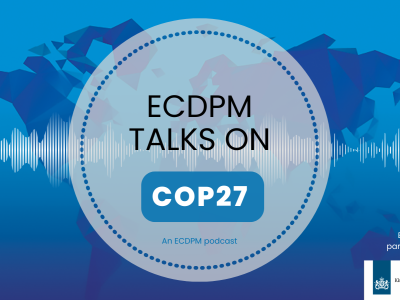
Planting seeds and breaking eggs: EU Delegations dealing with peace and security - the Sahel case and beyond
- Peace and security work in EUDs is still a suboptimal combination of influences from EU stakeholders, who will all have to break some eggs to make the best development and security omelet
- EUDs political sections in fragile contexts suffer from staff shortage on peace and security related issues, thus limiting their ability to better link crisis response to development action
- DEVCO and ECHO’s experience and expertise in the field of security could be better exploited and shared in EUDs
- Current procedures allow EUDs to rapidly contract development funds to respond to crises but they don’t seem to be used as frequently as they could
- The effectiveness of EUDs development and security actions in fragile and conflict contexts will significantly depend on staff security and safety
Background
Since the deconcentration reform of the external service of the European Commission in the early 2000s, Commission delegations have gone through a series of changes. One – and not the least - of them is to play a more political role in third countries including those where development cooperation and poverty alleviation remains a top priority. Under the Lisbon Treaty, EU Delegations in the world have new responsibilities in the field of peace and security: they now represent all EU institutions and contribute to the EU’s efforts to safeguard its own security and to strengthen international security.
Purpose of ECDPM Study
The objective of this Briefing Note is both to provide the incoming teams in EU institutions with fresh knowledge and concise messages about the peace and security role of EU delegations in contexts of fragility or crisis as well as informing a wider readership curious to know more about how the EU deals with the security-development nexus. This note uses evidence based mainly on field missions in the Sahel and hopefully provides knowledge or assumptions of relevance to other EU Delegations in other fragile and conflict contexts.Key Findings of ECDPM Study
In theory and practice, political sections would be the most logical hub within the EUD to catalyse early warning, violence prevention and crisis response activities. However, those sections are still under-staffed and very much reliant on stronger operations sections that concentrate much of the field expertise, knowledge and experience.
DEVCO has a lot to bring on to the table, provided ideological and bureaucratic barriers are broken down from the very top of its hierarchy. Crisis response derogatory procedures exist for the use of development funds but, as in the case of the Ebola crisis mentioned to us, they are not used as frequently as they could by EU Delegations.
Peace and security functions in EU Delegations are currently very much disseminated across these entities and shared with other EU bodies – including Member States – operating in host countries.
Re-introducing thematic expertise within DEVCO HQ on peace and security at large would substantially reinforce the capacities and performance of EUDs and favour knowledge circulation to the benefit not only of DEVCO staff but also of seconded national officials and other EU personnel.
The EU’s much vaunted ambition to engage a more effectively comprehensive approach to crises will run aground fast if there is no investment in appropriate staffing at the EU Delegation level.
Read Briefing Note 70


